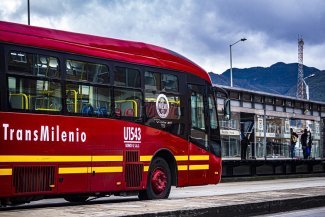
Recent figures may signal that unemployment is decreasing in Lithuania, but there are still too many people without work, especially among the country’s youth.
New data from the Lithuanian Statistics Department released last week revealed that the country’s official unemployment rate has fallen from 15.3 per cent in 2011 to 13.2 per cent in 2012.
However, this is still above the EU average and the true figure is thought to be much higher as many people prefer to engage in seasonal work abroad instead of registering unemployed at home.
The new centre-left government, led by Prime Minister Algirdas Butkevicius who came to power in December 2012, seems determined to reform both the education and employment sectors in order to tackle job insecurity amongst young people.
However, critics say that a proposed minimum wage reform could create more unemployment as crisis-stricken companies will be less likely to hire extra workers.
They also say that the proposed education reforms equate to little more than a “planned economy.”
Proposals
In Lithuania, most universities are public and free education is a constitutional right for “capable” students.
Prior to 2008, students with the top grades in each study programme received scholarships while others received a partial subsidy on tuition.
However, in 2008 the Liberal government, in coalition with the Conservatives, embarked on a reform that created a gap between fully-funded and self-funded students.
Funding per student was allocated not for each study programme, but in several broad subject areas (e.g. natural sciences), and partial subsidies were removed.
The idea was to have funding follow school-leavers with the top grades and have universities compete for them. But in effect, prestigious specialisations swelled, while others subjects including applied sciences, failed to attract students.
In addition, in an increasing climate of job insecurity, the Liberals also slashed unemployment benefits.
Since December 2012, the government has been led by the Social Democrats, and their coalition partner – the centrist-populist Labour Party – is responsible for education.
The new leaders want to introduce special state funding in strategically important areas.
For example, according to Rimantas Vaitkus of Vilnius University – who was recently appointed Deputy Minister for Education and Science – Lithuania’s economy lacks textile specialists and social workers, but the salaries in these sectors are too low to make these careers attractive, and this is beyond the control of education policy.
The new Minister of Social Security and Labour, Algimanta Pabedinskiene, has also suggested introducing work placements and guidance for students and fostering dialogue with employers.
Concerns
But many observers have their reservations.
The impact of the skills and employment opportunities for Lithuanian graduates is not restricted to one country alone. Although Lithuania has a population of around three million people, it also has a large and growing migrant worker population in the UK, Ireland, Sweden and other European countries.
“Time has shown that the laws of free market cannot be applied to higher education. It happened that popular and cheaper specialisations like law, economics or management attract more students than there are jobs for them,” says Arturas Stimbirys, chairperson of the Federation of Lithuanian Education and Science Trade Unions.
Mindaugas Jurgelis, an analyst at DNB bank, claims that the fact that many students are shunning industrial professions is the reason by behind youth unemployment, which, at 34.3 per cent, is far above the EU average of 22.1 per cent. Statistically, one in five unemployed young people in Lithuania has a post-secondary education.
Stopping the Lithuanian brain drain is also high on agenda for the new coalition government, but graduate employment is not the only concern. Academic unions are waiting to see a real social democratic style of policy-making.
Fragmented dialogue
Lithuania’s academic community is hoping that the reforms will also bring about changes in the style of decision-making.
Education researcher Zilvinas Martinaitis says that the concept of ‘social dialogue’ in Lithuania is often more of a monologue where stakeholders are informed about decisions that have already been made.
The Lithuanian Education Trade Union has complained that the previous education minister often “broke his promises and pushed decisions without an agreement.”
Dissatisfaction and criticism are often expressed, but it is time to negotiate and make joint proposals, says Marija Ausrine Pavilioniene, a member of the Social Democratic Party and the Parliament’s Committee on Education, Science and Culture.
“There are many unions in the education sector, and they are fragmented, but the education sector is one. They would really achieve more if they worked together, but it seems to me it is often a matter of personal ambitions among the unions’ leaders,” Pavilioniene told Equal Times.
As the new leaders are getting accustomed to their work, openness to dialogue with the academic community seems to be there, but years of insecurity and competition has left the academic community more fragmented than ever.








